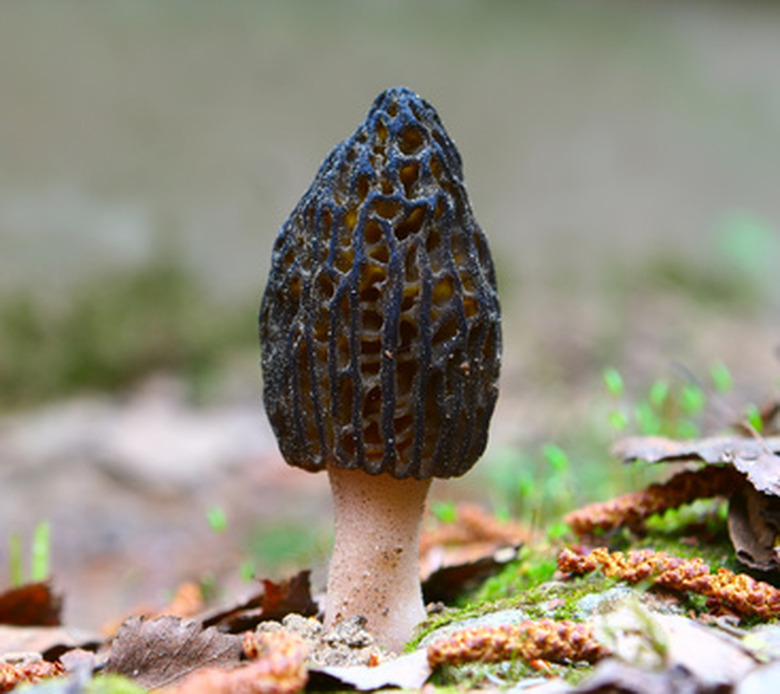Types Of Elephant Ear Mushrooms
Elephant ear mushrooms are so named because they are large and floppy. Several species of this type of mushroom exist in the genus Rhodactis. Some grow in water and some on land, but the terrestrial species are poisonous to humans. The appearance of these mushrooms can be striking, with their large size and interesting colors. Sometimes called mushroom "corals," the aquatic members of this family are popular as aquarium plants.
False Morel
This terrestrial elephant ear mushroom is poisonous. Several species of this mushroom exist, including Gyromitra esculenta, Verpa, Hellvella and Disciotis. Their wrinkled caps my be white, grey, red, brown or black. Serious illness can occur if you eat a false morel mushroom; severe overdoses may result in death.
- Elephant ear mushrooms are so named because they are large and floppy.
- Sometimes called mushroom "corals," the aquatic members of this family are popular as aquarium plants.
True Elephant Ear Mushroom
Also called the giant cup mushroom, great disc anemone, giant flower coral and Amplexidiscus fenestrafer, this elephant ear mushroom is aquatic. It is native to the Indo-Pacific region. Its 8- to 12-inch caps can be white, brown or gray-green. This mushroom is popular among aquarium enthusiasts, although it is carnivorous and can cause fish to become paralyzed if they come into contact with its stinging cells.
Rhodactis Mussoides
Often used as an attractive aquarium plant, this elephant ear mushroom is one of the largest of the Rhodactis genus. It looks like a large, leafy coral and grows as large as 15 inches in diameter. It's normally brown or green with tentacles that are rounded. The mushrooms eat small fish, so keep this in mind if you use them in an aquarium containing fish or crustaceans. Animal-World.com reports that this elephant ear mushroom is easy to care for and is often available for sale at fish stores.
- Also called the giant cup mushroom, great disc anemone, giant flower coral and Amplexidiscus fenestrafer, this elephant ear mushroom is aquatic.
- This mushroom is popular among aquarium enthusiasts, although it is carnivorous and can cause fish to become paralyzed if they come into contact with its stinging cells.
Identify Beefsteak & Elephant Ear Mushrooms
Beefsteak and elephant ear mushrooms are in a category of "false morels," meaning that they resemble and are often mistaken for edible morel mushrooms. Beefsteak or elephant ear are common names for the gyromitra esculenta species of mushroom. They are often poisonous false morels that are found on hardwood trees. Look for certain characteristics when attempting to identify beefsteak or elephant ear mushrooms in nature. They are of a dark brownish red color and are heavily textured due to a porous surface that resembles a malformed cauliflower. The cap can grow up to six inches wide and the height is usually about four inches. The stem is an off-white color. Avoid touching or eating beefsteaks or elephant ears.
- Beefsteak and elephant ear mushrooms are in a category of "false morels," meaning that they resemble and are often mistaken for edible morel mushrooms.
